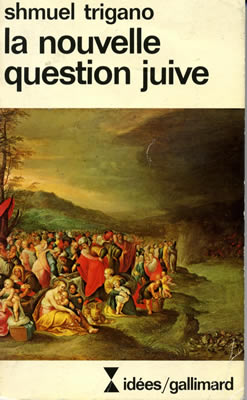To liberate Jewishness from a mortifying modernity, in which, in order to exist outside where the exclusive empire of politics was erected, it had to renounce itself as a historical force in politics, and accept its exile in an “inside” of occultation and negation: to assume its death for life…
From the outset, this was the ambition of this work, which met with an immediate response.
This first critique of Jewish modernity, which has come to an end and is no longer relevant, at a time when the crisis of politics is obvious, aims to found a New Jerusalem in which the Jew will no longer be a stranger to himself in history. The opening of a new Jewish “modernity”, a new era of Jewishness in the contemporary world.
Here, then, is the formulation of what is perhaps the first Jewish theory of the political: it confronts and crosses contemporary politics head-on, actively going beyond it rather than adapting to it and reproducing it. For the sole purpose of breaking with the confinement of the private world, of bringing the dead out of their vaults, turning the old into the new, and nocturnal decrepitude into the dawn.

